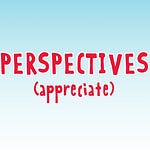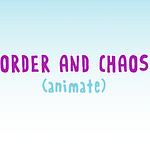Abbie: Hello and welcome to the CosmoParenting Podcast brought to you by the CMM Institute for Personal and Social Evolution. In this space, we invite you to see yourself as someone who is curious about and actively participating in creating your own meaning around parenting.
This is our ‘Validate’ episode, where in the second episode of each month we hear a parenting story, with the hope that sharing the first hand experiences of others who are parenting can make you feel seen and validated in your own experiences. Let’s begin.
*music*
Abbie: Today, I am joined by Liz. Liz, thank you so much for being a part of this.
Liz: Aw. Thank you so much for inviting me, Abbie. It's my first time being part of a podcast. So I'm in equal measures, nervous and excited. But yeah, really grateful that you asked me to come along.
Abbie: Oh, I'm so grateful that you wanted to be a part of this. And as you know, this month is about perspectives. And I'll share that the way we've talked about perspectives so far, we're making generalizations about them saying, what are some things that are true about perspectives?
And so what we've talked about so far is that there are infinite perspectives and also that many different perspectives can coexist at the same time. So I think our work this month is about learning to open ourselves up to other perspectives that the people in our lives bring. So with all of that in mind, Liz, please share with us your story about perspectives.
Liz: Okay, thank you. Yeah, that is a lot to hold in mind. And it really makes me think about how big this idea of perspectives is. So maybe I'll start by just saying a little bit about my situation before I go on to talk about how perspectives have got me thinking about my family. So I am a wife and a mother, and I'm a mother to two sons who are my birth children.
And about two years ago, we started the process to become SGO carers, myself and my husband. And for those people who may be listening and not in the UK, an SGO carer is someone who has a formal responsibility over a child who isn't theirs by birth.
And it was my husband's nephew who we initially applied and now have become SGO carers for. So we have now three children who we are parents to. And thinking about the idea of perspectives really sort of came to the fore when our nephew came and joined our family, because he came with a perspective on the story of his life.
And he had been removed from some quite difficult experiences in his household, things that were not okay between him and his mum. And quite sadly, before my nephew joined our family, his mum died. And one of the things that we noticed when he joined our family was that lots of people around him had given him lots of perspectives on his mum dying, lots of different stories about his mum dying.
And so he came and he had a story about his mum dying, which really rubbed quite difficultly against the sort of stories that we tell within our own family.
And maybe I'll give an example of what that looked like. So our nephew, he was only, he had just turned three when he joined our family. The story that he'd been given was that his mum had died and she was living on a cloud in the sky. And I think this is a common story that often professionals tell children. And I think this is a story that he had been told by his social worker. And certainly when I spoke to other people within the extended family, that wasn't the story that they would have been telling him. But the one that he had held on to and was bringing into our family was this idea that his mum had died and was on a cloud.
And I hadn't quite realised it, but I think in this respect, my family are quite concrete, I guess, in the way that we think about death right so you know if you were to ask my children, my birth children, about their granny who's died or their auntie who's died they would be saying that, you know, they're no longer alive, they're buried, they're no longer with us, and we miss them, and they're only alive now in our memories. And so when he came with this other story it was you know a real challenge to us to think about what do we do with that.
Do we offer our perspective on it? Would that confuse him? Is that helpful to him? How do we create a household that can tolerate not multiple perspectives, but almost perspectives that are almost like the opposite of each other?
So that was something that we really struggled with. And as he's got older, he started to question more and more that story that he was given by his social worker. And that's creating all sorts of questions for him that we've had to spend quite a lot of time thinking about and wondering how to answer for him in a way that is helpful.
I think, I guess, because of my training and I'm a social worker, but I've also trained in family therapy, love ideas that come from CMM I can totally embrace the world of the multiple perspectives, the multiversa, I think children find it harder. And maybe for my nephew who has had so much uncertainty in his life, he's drawn towards something much more certain, much more concrete, and, yeah, the idea that there are so many different stories that are around about his mother dying has given us some real challenges in knowing what to do for the best.
Abbie: Yeah. Thank you so much for sharing that story. And it's making me think about with every theme that we're talking about throughout CosmoParenting, it is this kind of dual experience happening at the same time that we're trying to walk through of, okay, for people who are parenting, what is your own relationship to something like perspectives? To something like stories, to something like conflict?
And at the same time, as you're navigating your own relationship to it, how can you help your children navigate their relationships to it? So I'm curious about what that's been like to navigate your own relationship to differing perspectives as you also help your children do the same.
Liz: Yeah. And I think it's more than dual when you are a parent of a child who isn't yours.
Abbie: Yeah, that's a great point.
Liz: You know he is mine and I feel like his parent, but I’m also acutely aware that he has a dad who, although isn't caring for him, is still around and is alive. And he has a particular perspective on his ex-partner dying. And he wants me to tell the story in a way that represents how he remembers his mum.
The grandparents are around. So it's my husband's sister, who is my nephew's mum. And the maternal grandmother, of course, has such an emotional hold over the story that is told about her daughter.
And so it's not just that sort of dual perspective, it's the multi-perspective. And it feels like there is a great responsibility on us because we are the ones who are doing the telling for him to be able to accommodate all of the hopes that other people have about, you know, what they want my nephew to know about his mom and the way that she died.
So you asked about how we navigate and negotiate that. And I really don't know. It's something that we're honestly still grappling with. There are times, I think, where we find ourselves sort of closer to one person.
So as time has gone on, I found myself becoming closer to my nephew's grandmother. And as I've come to learn more about what has become important to her, in the telling of the story for her grandson. I guess it's sort of come more into my consciousness or the way that I try to intentionally tell a story that is helpful for my nephew. So that's made a difference.
Abbie: Yeah, I really appreciate this perspective on perspectives. And what I hear you kind of getting at is you can't talk about the perspectives that you're engaging with without talking about the human beings that are bringing those perspectives to you and the relationships you have to them.
Liz: Yeah. And it's just, it's always evolving. And I'm like quite conscious that we know we're recording this today but at the time that it's going to be played I'm going to be listening back to this and thinking, oh my goodness my ideas have changed so much!
Abbie: Yes!
Liz: And the way we tackle this is so different and you know I'm going to be telling this story so differently I think when this airs.
Abbie: Yeah yeah, and that that transitions us easily into the next theme which the very last theme of CosmoParenting is going to be change so it makes sense that the perspective would flow right into that. So, Liz thank you so much for sharing your story today I really am thankful that you would be a part of this with us.
Liz: Oh, it’s been a pleasure. Thank you. It's actually been really helpful for me to have a little bit of time to think about this too.
Abbie: Yeah. And to everyone listening, thank you for joining us, too. Don't forget to check out www.cosmoactivities.com for our other resources in this series, and be sure to comment on this podcast episode on the CosmoParenting Substack. We are so grateful to be on this journey with you. And we will see you next week to explore some parenting best practices.
*music*









